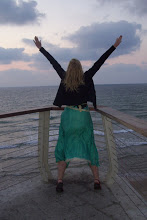This week I read modern Korean short stories and ran into the very best one in any language I have ever read about women and education. Here's an excerpt from the assignment I wrote on "Kyonghui," said to be the first feminist short story in Korean literature.
"Kyonghui" (경희) by Na Hye-sok (나혜석), published in 1918, is a beautiful story about a nineteen-year-old girl from a traditional Korean home who, having traveled to Japan to be educated, is home for summer vacation. Women from all over come to scold her and criticize her choice to go away to learn rather than accept a marriage proposal, but upon meeting her are impressed with her confidence, character, and, surprisingly, her increased aptitude for traditional women’s work. Kyonghui shows a deep, happy interest in even the most menial chores: she doesn’t see laundry, she sees chemistry. The story culminates in a cathartic self-examination scene, impressively written, where Kyonghui, having just rejected a once-in-a-lifetime marriage offer, philosophically analyzes her choice and emerges spiritually reborn, having realized what it really means to be a person.
Remember, this is 1918 in Korea (then extremely sexist, now residually so). Kyonghui's conclusion is still resonant:
"Kyonghui" (경희) by Na Hye-sok (나혜석), published in 1918, is a beautiful story about a nineteen-year-old girl from a traditional Korean home who, having traveled to Japan to be educated, is home for summer vacation. Women from all over come to scold her and criticize her choice to go away to learn rather than accept a marriage proposal, but upon meeting her are impressed with her confidence, character, and, surprisingly, her increased aptitude for traditional women’s work. Kyonghui shows a deep, happy interest in even the most menial chores: she doesn’t see laundry, she sees chemistry. The story culminates in a cathartic self-examination scene, impressively written, where Kyonghui, having just rejected a once-in-a-lifetime marriage offer, philosophically analyzes her choice and emerges spiritually reborn, having realized what it really means to be a person.
Remember, this is 1918 in Korea (then extremely sexist, now residually so). Kyonghui's conclusion is still resonant:
“First
of all I am a human being. Then I am a woman. This means that I am a human
being before being a woman. Moreover, I am a woman who belongs to the universal
human race before being a Korean woman. I am God’s daughter before being the
daughter of Yi Ch’orwon and Lady Kim. After all, I was born with a human form.
This form, which includes not only the outer skin but also the internal organs,
is definitely human, not animal. Without a doubt, I am a human being! If I, as
a human being, don’t choose untraveled, rough roads, how can I ever ask that of
others? Human beings are expected to achieve high goals and be proud of them,
as if they were standing on a mountaintop and looking down below. . . .Dear
God, here is your daughter! Father, thank you for your grace! Please look at my
face, glowing with life. Dear God, please give me eternal glory and strength. I
pledge to do my best. Please make use of me. I’m at your disposal, for you have
the power to either reward or punish me.”
[Reproduced in a collection called Questioning Minds: Short Stories by Modern Korean Women Writers (translator: Kim Yung-Hee, 김영희)]


No comments:
Post a Comment